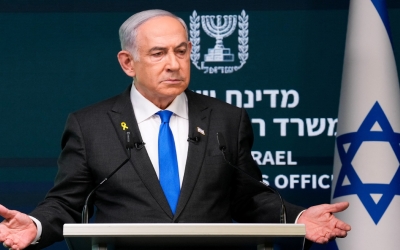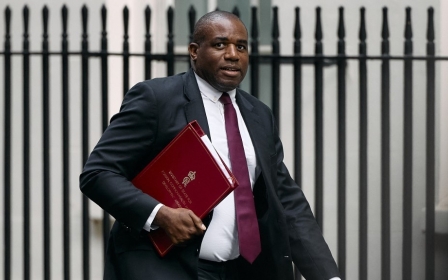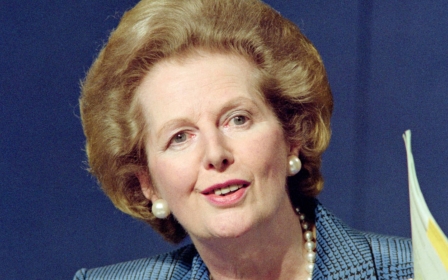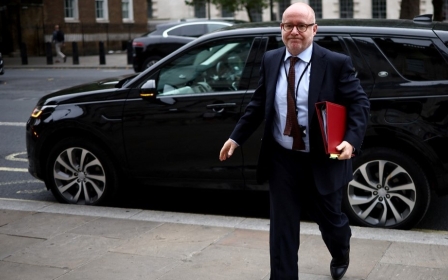Israel lashes out at UK over arms restrictions as US shrugs move off
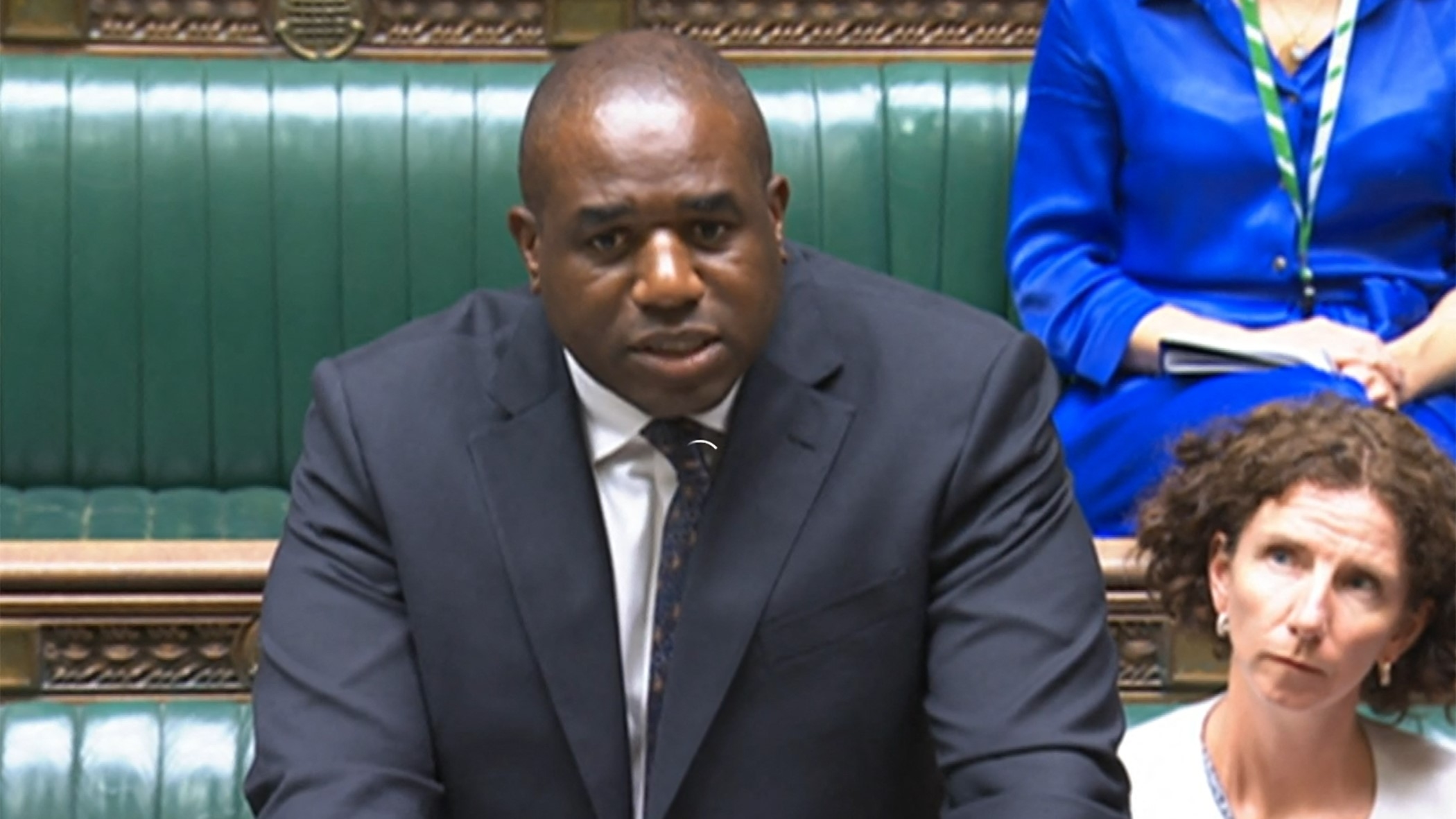
The Israeli government has lashed out at Britain after it announced it had suspended 30 out of 350 arms export licences to Israel.
Middle East Eye revealed in late July that the government was set to introduce restrictions on arms sales to Israel but days later it emerged that the decision had been delayed until after parliament's month-long recess.
That postponement was criticised by pro-Palestinian activists and aid groups at the time and in light of the government's most recent announcement.
Oxfam Great Britain's chief executive Halima Begum said: "In the time parliament has been in recess alone, Oxfam estimates that over 1,100 people have been killed in Gaza by the Israeli military."
The suspension, announced Monday, has sparked outrage in Israel, with Prime Minister Benjamin Netanyahu calling it "shameful" and adding that Israel would win against Hamas "with or without British arms".
New MEE newsletter: Jerusalem Dispatch
Sign up to get the latest insights and analysis on Israel-Palestine, alongside Turkey Unpacked and other MEE newsletters
Israeli Foreign Minister Israel Katz said the suspension "sends a very problematic message to Hamas and Iran", and another senior official reportedly branded it a "miserable and insensitive" move.
'In the time parliament has been in recess […] over 1,100 people have been killed in Gaza by the Israeli military'
- Halima Begum, Oxfam CEO
Chris Doyle, director of the Council for the Advancement of Arab-British Understanding (Caabu), told Middle East Eye that the new policy may cause long-term damage to British-Israeli relations, depending on the Israeli response.
"Israel could announce they are reducing security cooperation," Doyle said, "or they could decide it's not worth making too much of a fuss about and that they understand the domestic political reasons why the British government had to do it."
He added: "If they go for the more aggressive option it's hard to see how the relationship would heal quickly. It would add to the sense in Israel that they are increasingly isolated."
Netanyahu reportedly refused to meet British Foreign Secretary David Lammy during his trip to Israel in mid-August over the UK dropping its objection to the International Criminal Court's decision on arrest warrants for Israeli leaders.
'Months of carnage'
Doyle told MEE it was extraordinary that it had taken "11 months of carnage and atrocities" for the government to come to its conclusions.
"I wouldn't be surprised if this was coordinated with the Americans," Doyle said.
"It could well be the timing is not just that parliament has returned, but that Netanyahu is being blamed politically for the failure of ceasefire talks.
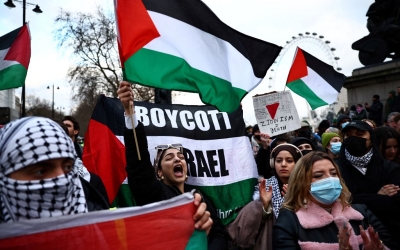
"Such moves as an arms ban were held off while there was that chance of a ceasefire. This is an admission that they know that the ceasefire talks have gone nowhere.
"While in public they blame Hamas, in private they know the Israeli government bears responsibility too."
According to the Telegraph, a Foreign Office source said the US had been informed of the decision before it was announced.
A Biden administration official reportedly said that legal standards over arms sales were different in the UK and that there was no animosity between the two countries.
Meanwhile, the Labour government has come under intense fire from British supporters of Israel's war on Gaza.
Former Conservative Prime Minister Boris Johnson asked: "Why are Lammy and Starmer abandoning Israel? Do they want Hamas to win?"
Chief Rabbi Sir Ephraim Mirvis said the decision "beggars belief" and claimed that "this announcement feeds the falsehood that Israel is in breach of International Humanitarian Law, when in fact it is going to extraordinary lengths to uphold it."
The Labour Friends of Israel group also criticised the decision, saying that the restrictions "risk encouraging Israel’s enemies".
Shadow Foreign Secretary Andrew Mitchell speculated on Monday that the policy "has all the appearance of something designed to satisfy Labour’s backbenches, while at the same time not offending Israel, an ally in the Middle East."
Mitchell added: "I fear it will fail on both counts."
'If the government is admitting that British weapons might be involved in breaking international laws, I don't understand how it can justify the remaining 320 licences, including F35 fighter jets'
- Zarah Sultana MP
Some Labour backbenchers have praised the government's move. MP Afzal Khan told MEE he was pleased that Foreign Secretary David Lammy had taken an "important first step".
"Upholding international humanitarian law must be central to any export regime, and it's clear the new Labour government recognises this," Khan said.
"Ultimately, the only thing that will stop innocent Palestinian civilians being killed is an immediate and permanent ceasefire in Gaza, as the Labour government has been calling for. This must remain our utmost priority."
Zarah Sultana, a currently independent MP who had the Labour whip suspended after voting to scrap the two-child benefit cap in July, told BBC Radio 4 on Monday that the government's suspension was "too limited".
"If the government is admitting that British weapons might be involved in breaking international laws, I don't understand how it can justify the remaining 320 licences, including F35 fighter jets."
She added that the jets "have been dropping 2,000 bombs on Palestinians for months, and these are described by their manufacturer as the most lethal fighter jets in the world".
'Window dressing'
Oxfam has slammed the government's suspension as "window dressing" because it leaves a "loophole that allows Israel to order weapons via third parties", as well as loopholes for components in F-35 jets.
Rights advocates and arms campaigners have echoed these criticisms, with the Global Legal Action Network (Glan) expected to challenge the continued exports in court on Tuesday.
Yasmine Ahmed, UK director of Human Rights Watch, called the F-35 a "workhorse of Israel’s brutal bombing campaign" and slammed the exemption as "either a miscomprehension of the law or a wilful disregard".
British-made components comprise 15 percent of all F-35 fighter jets.
Foreign Secretary David Lammy said in parliament on Monday that suspending parts for F-35s, used in a multi-national programme, would be wrong because it would "undermine the global F-35 supply chain that is vital for the security of the UK, our allies and Nato".
Earlier that day, Danish news outlet Information had revealed that the Israeli military used an F-35 stealth fighter in a 13 July attack on a designated safe zone in Gaza which killed at least 90 people.
UK arms sales to Israel amount to one percent of Israel's defence imports - the US is the biggest supplier, accounting for 69 percent of its imports.
Middle East Eye delivers independent and unrivalled coverage and analysis of the Middle East, North Africa and beyond. To learn more about republishing this content and the associated fees, please fill out this form. More about MEE can be found here.


